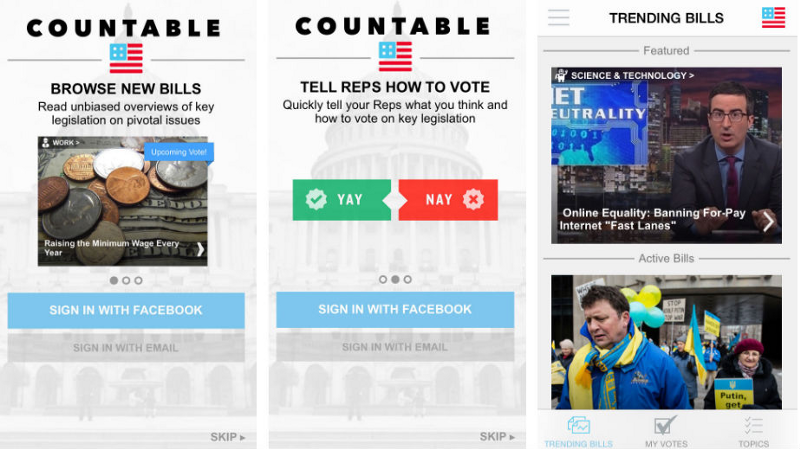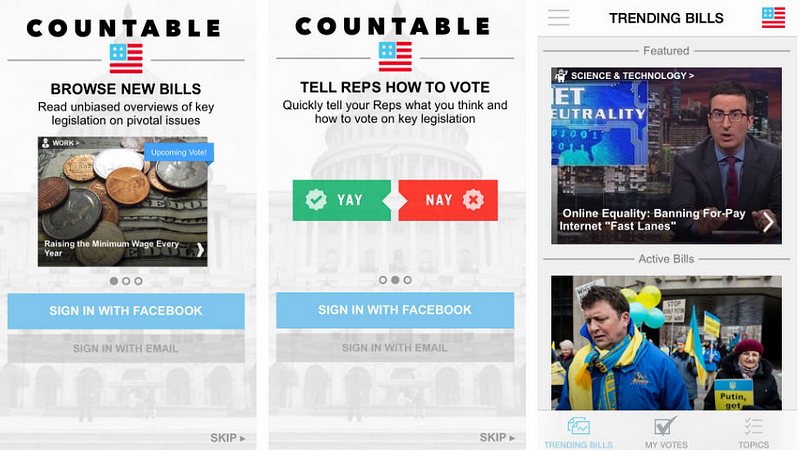Democratizing in the Digital Age
A defense of the internet’s role in politics
By Monica Roman, Operations Associate
It is easy to get caught up in the narrative of the internet as a chaotic force in politics these days, with it being described as some kind of Orwellian fever dream of fake news and Russian hackers, with some talk about leaked emails sprinkled in there for fun. It is important to remember, however, that the internet is a medium that assumes the values we project onto it. Values like debate, compromise, collaboration, and grassroots change are integral to a functioning democracy, but are oftentimes glossed over or ignored online. Essentially, the internet can’t be a replacement or stopgap measure for cultivating civic norms and values, but it can be an invaluable tool in carrying out civic responsibilities.
One of the most overlooked aspects of living in the digital age is how democratizing the internet can be. We have unprecedented access to limitless information and more and more tools are being developed to help us navigate it. Tools like Countable and TurboVote give us access to direct and targeted information about local politics like how our elected officials are voting or when the next special election is. Sites like recently-launched USA Factsconsolidate endless amounts of government data into one easy-to-navigate platform. We have more information at our fingertips than anyone in human history had over a whole lifetime and there are initiatives to make sure internet access is equitable and available. Making it accessible, however, is just the start. Having the answers to everything doesn’t necessarily mean we know the right questions to ask. The cornerstones of a civics education — debate, critical thinking, consensus-building — are fundamentally important when navigating a flood of information and identifying targets and tactics for creating actionable change.
When we have access to information, and the skills to make sense of it, the internet transitions into a powerful tool for direct political engagement. We can follow our elected officials on social media and tag and tweet them or encourage people in our networks to call their representatives, sign petitions, and participate in local online initiatives like participatory budgeting. Most importantly, we can try and avoid trapping ourselves in an echo chamber. Democracy is at its best when there is (respectful) debate and compromise. As the country trends towards “single-party geographic enclaves,” online forumscan serve as a space for thoughtful discourse and debate. Values like consensus-building can’t be fostered without a variety of experiences and opinions at the table.
Active citizenship goes beyond the ballot and beyond a keyboard. A wave of social media driven movements over the past few years has shown us that movements conceived online can build legs and lead to greater mobilizationand real-life actions. The Women’s March is considered one of the largest protests in American history, with over three million people participating nationwide, almost all of whom were mobilized online. Turning Point USA is using hashtags like #BigGovSucks to build solidarity among young conservatives and mobilize grassroots activists to become one of the fastest growing youth driven organizations today. The Black Lives Matter movement stemmed from a series of hashtags and emerged to become one of the premiere groups fighting for civil rights today, organizing protests, gathering much-needed data, and proposing real policy solutions.
Being an active citizen in the digital age is the key to cultivating the civic norms that keep our democracy going. Critical thinking and collaboration are integral to political engagement and the internet affords us a platform to hone these skills. We have unprecedented access to information and more and more tools for making use of it. But it is our responsibility to ensure that we, and future generations, are prepared to use the internet productively and proactively to foster debate, take action, and get politically involved. Online forums allow us the ability to engage directly with elected officials, to engage with each other, and sometimes to engage with each other in an effort to get those elected officials’ attention. Moreover, being an active citizen in the digital age means that we aren’t confined to a specific time or place to make our voices heard and push for meaningful change; it’s important to not just talk about change, but to lead it.
Generation Citizen is a nonpartisan, 501(c)3 tax exempt organization which does not endorse candidates; our goal is to engage our staff, participants, and stakeholders in political and civic action on issues that matter to them personally and in their communities. The opinions expressed in this blog post are those of the writer alone and do not reflect the opinions of Generation Citizen.

